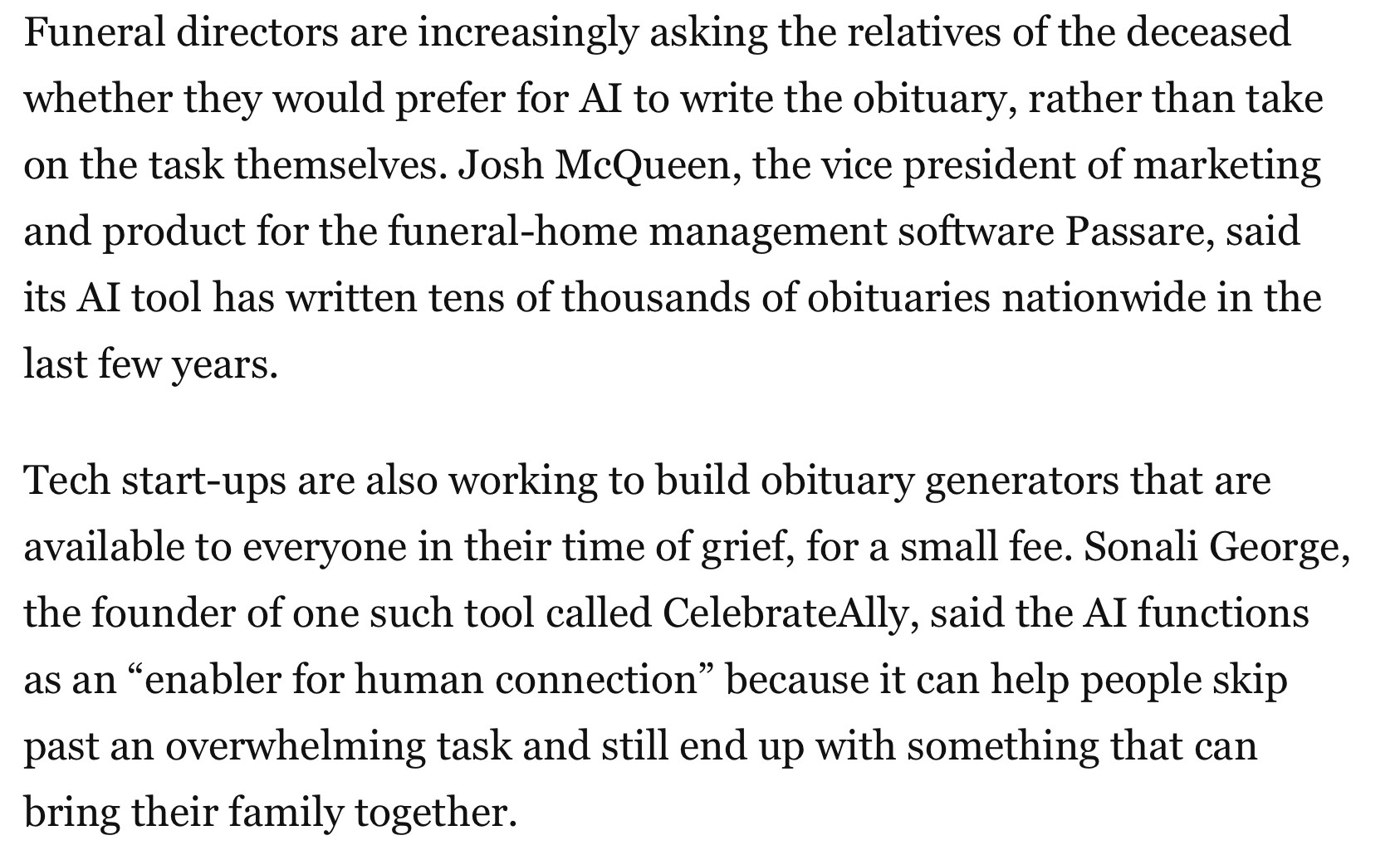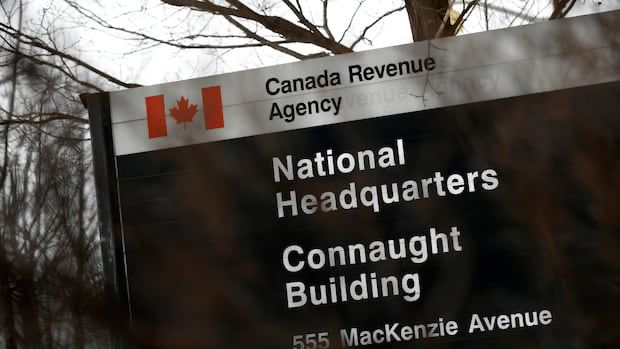What would happen if the billionaires moved out of NYC? I'm guessing there would be enough businesses to keep it thriving. There are many more non-billionaires than billionaires.
Tempa
@tempaleigh.bsky.social
676 Followers
1402 Following
Halifax Nova Scotian; menopause advocate; lover of cats, health sciences, politics. Overall, I'm not that important.
Statistics
-
-
Talking about menopause because we must.
I had a myomectomy at 31, perimenopause at 39, hysterectomy at 42, and entered menopause @ 47 this year.
I've never been pregnant, but my sisters have 3 kids each. We've had many terrible OB/GYN experiences. And the culture avoids openly talking about this!
-
New in PN: The looming Trump-cession
"No administration in history has done so much so quickly to immiserate the American people. And no administration since Herbert Hoover’s seems less willing to change course as it barrels over a cliff."
The looming Trump-cession
Orange man bad (for the economy).
-
Nice. Only two days a week, though, but it's better than nothing.
Australian state seeks to enshrine work from home in law
The premier of the Australian state of Victoria announced Saturday plans to enshrine working from home in law, saying it should be “a right, not a request”.
-
The saga continues. Needless to say, no one in our building got 8 hours of sleep, as we were awakened this morning at 6:00 to a now-glitched fire alarm that just went off again at 6:45. Our cats are a wreck. Happy Natal Day!
-
Christ. That "overwhelming task" is being a human who is suffering loss and expressing love for the departed in a heartfelt manner. Any supposed imperfection in the expression is exactly what makes it right.
New: A few weeks ago, when my father-in-law died, the funeral home asked if we wanted to use AI to write his obituary. So I dug into it and found that it's the biggest new trend in "death care." Tens of thousands of AI obits have been made already. Often the families don't even know wapo.st/4okuxIg
The rise of AI tools that write about you when you die
Families and funeral directors are using AI obituary generators to more efficiently memorialize the dead. What happens when they get it wrong?
-
Well, thank goodness tomorrow's a holiday because we just had a fire alarm in our apartment building. Our neighbours burned some food, opened their door to the hallway to ventilate, and set off the alarm to the whole building. All's well. Our poor cats.
-
A growing number of American Jews whose parents and grandparents fled Germany during World War II are now getting German citizenship.
Some American Jews whose families fled Nazis are now seeking German citizenship. Here's why
A growing number of American Jews whose parents and grandparents fled Germany during World War II are now getting German citizenship.
-
There's always the flip side, isn't there? I see Warren Buffet is mentioned in this. What they failed to mention is how he, too, agreed he should be taxed more. Millionaires are the one group who can afford it. And they'll still be millionaires after the fact.
These Canadian millionaires are asking for tax increases — but just for themselves
Patriotic Millionaires lobby group wants higher taxes on the rich, but critics say it could drive away wealth #Canada #cdnpoli
These Canadian millionaires are asking for tax increases — but just for themselves | CBC News
A group of wealthy Canadians calling themselves 'Patriotic Millionaires' is banding together to lobby governments to increase the amount of taxes they must pay — but opponents say it will be bad for e...
-
Neoliberalism's core assumption is that societies don't need safety nets, because people can take care of themselves. But that just incentivizes people to push the work of care downstream onto women. And to prevent them from having the kind of power to push it back.
UK has got ‘fat’ on decades of free labour by women, says MP Jess Phillips
UK has got ‘fat’ on decades of free labour by women, says MP Jess Phillips
Minister points to ‘sexist’ practice of country relying on women to provide services so government did not have to Labour MP Jess Phillips has said the UK has got “fat” from the free labour of women for decades. The minister for safeguarding and violence against women and girls said the country has relied on women providing charity, adding it was a “fundamentally sexist” practice that meant the government was less willing to provide the service itself. She said she “hated” the title of her role and added that safeguarding against gender-based violence should be “business as usual in every single government department”. The Birmingham Yardley MP also suggested there was an issue in Whitehall where government departments viewed violence against women and girls as solely a Home Office issue. Phillips said she had to push for the safety of women and girls to be a “mainstream concern”, which she said had not always made her “popular as a government minister”. Asked what pushback she had received from ministers or civil servants, she said: “People directly say things like, ‘That’s the Home Office’s job’. “Why is it my job to do healthy relationship education in schools? Why is it my job to provide mental health support for whatever reason it is that you ended up in that [situation]?’ “Do you know what it is? Free labour of women is where it comes from. “It comes from a fundamentally sexist place in that women didn’t have these services, so a load of women across the country got together and made these services and offered them to other women for free, and they didn’t get paid for their labour. “So they put down a mattress and made a refuge. They set up counselling services and got people who were trained to be therapists and got their voluntary hours and set it up for free.” Phillips said people do not recognise how heavily the UK has relied on women providing support that previously did not exist. She added: “Nobody offered diabetes medicine for free. Pharmaceutical companies didn’t go, ‘Wow, this is really important. People will die without this. We’ll just give it away for free.’ “That is what the women in our country did in the 1960s and 1970s and 1980s and we got fat on that expectation that that service will be provided for free. “And we also belittled it as an issue that wasn’t absolutely, fundamentally mainstream to the safety and security of our nation. “Undoing that is really hard and it’s going to take a long time.” Continue reading...






![Minister points to ‘sexist’ practice of country relying on women to provide services so government did not have to
Labour MP Jess Phillips has said the UK has got “fat” from the free labour of women for decades.
The minister for safeguarding and violence against women and girls said the country has relied on women providing charity, adding it was a “fundamentally sexist” practice that meant the government was less willing to provide the service itself.
She said she “hated” the title of her role and added that safeguarding against gender-based violence should be “business as usual in every single government department”.
The Birmingham Yardley MP also suggested there was an issue in Whitehall where government departments viewed violence against women and girls as solely a Home Office issue.
Phillips said she had to push for the safety of women and girls to be a “mainstream concern”, which she said had not always made her “popular as a government minister”.
Asked what pushback she had received from ministers or civil servants, she said: “People directly say things like, ‘That’s the Home Office’s job’.
“Why is it my job to do healthy relationship education in schools? Why is it my job to provide mental health support for whatever reason it is that you ended up in that [situation]?’
“Do you know what it is? Free labour of women is where it comes from.
“It comes from a fundamentally sexist place in that women didn’t have these services, so a load of women across the country got together and made these services and offered them to other women for free, and they didn’t get paid for their labour.
“So they put down a mattress and made a refuge. They set up counselling services and got people who were trained to be therapists and got their voluntary hours and set it up for free.”
Phillips said people do not recognise how heavily the UK has relied on women providing support that previously did not exist.
She added: “Nobody offered diabetes medicine for free. Pharmaceutical companies didn’t go, ‘Wow, this is really important. People will die without this. We’ll just give it away for free.’
“That is what the women in our country did in the 1960s and 1970s and 1980s and we got fat on that expectation that that service will be provided for free.
“And we also belittled it as an issue that wasn’t absolutely, fundamentally mainstream to the safety and security of our nation.
“Undoing that is really hard and it’s going to take a long time.” Continue reading...](https://cdn.bsky.app/img/feed_thumbnail/plain/did:plc:vovinwhtulbsx4mwfw26r5ni/bafkreidtulakbncolxinmfyrkbqrqxk6xz7guv2w2id5aj3mu63i2j6owm@jpeg)